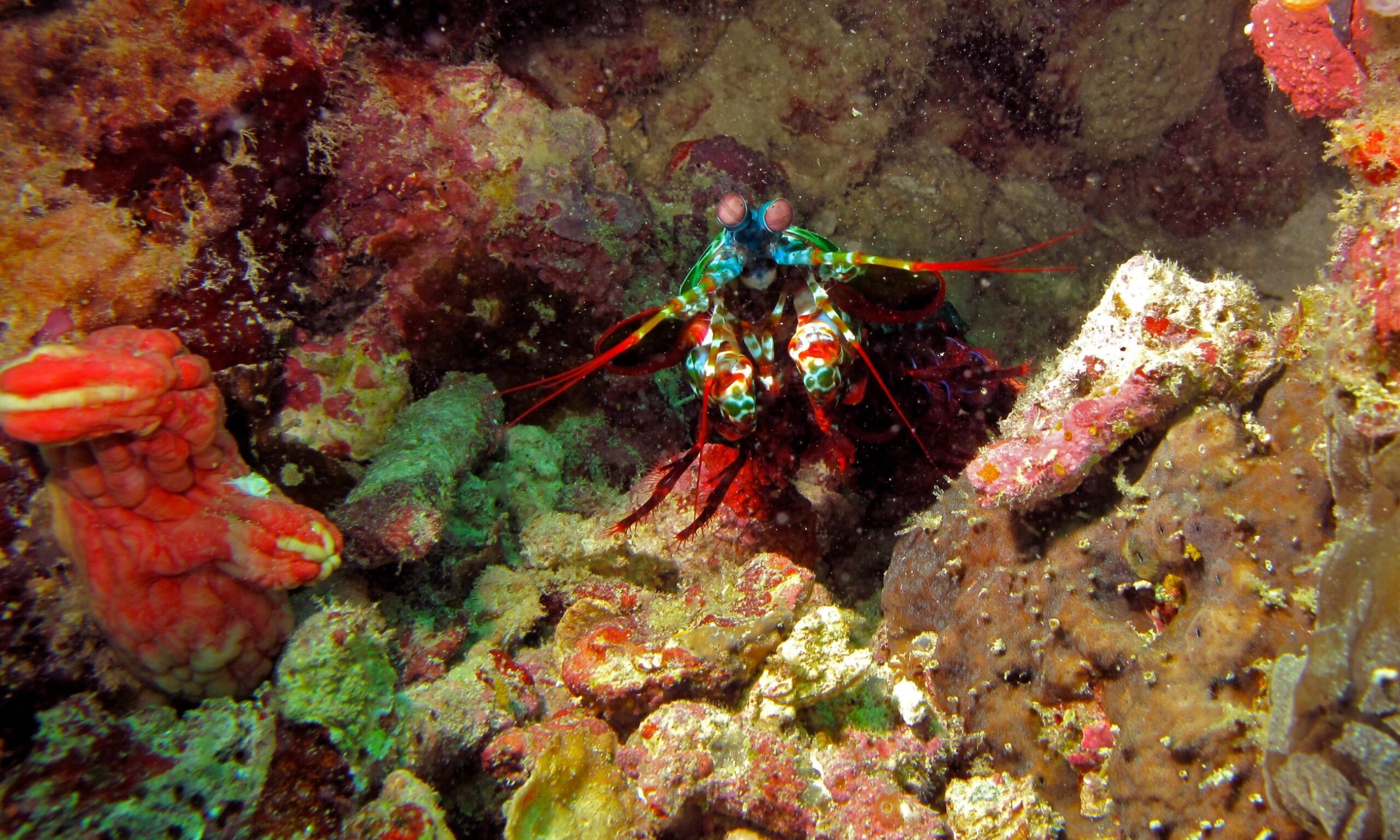Colorful mantis shrimps and freshwater darter fish took the spotlight at the recent annual meeting of the Society for Integrative Biology (SICB) in Tampa, Florida. UMBC biological sciences Ph.D. candidates Ricky Patel, Alice Chou, and Natalie Roberts, who study these intriguing creatures, earned four of the top student prizes awarded at the meeting, bringing well-earned attention to their own research and UMBC’s strong graduate programs.
Patel received the best student paper award for the Division of Neurobiology, Neuroethology, and Sensory Biology, and the best student oral presentation award from The Crustacean Society. Roberts was a finalist for the best student paper award for the Division of Animal Behavior. Chou received an honorable mention for the best student oral presentation from The Crustacean Society.
Quirky critters
Chou and Patel are studying mantis shrimp—small, colorful crustaceans that are “usually famous for two reasons: their very complex visual system and their very ballistic strike,” says Chou.
Patel is figuring out how mantis shrimp navigate to and from holes they call home. His inventive project has shown that at any point in time, a mantis shrimp can measure the most direct path back to its starting location—a skill humans can’t claim.
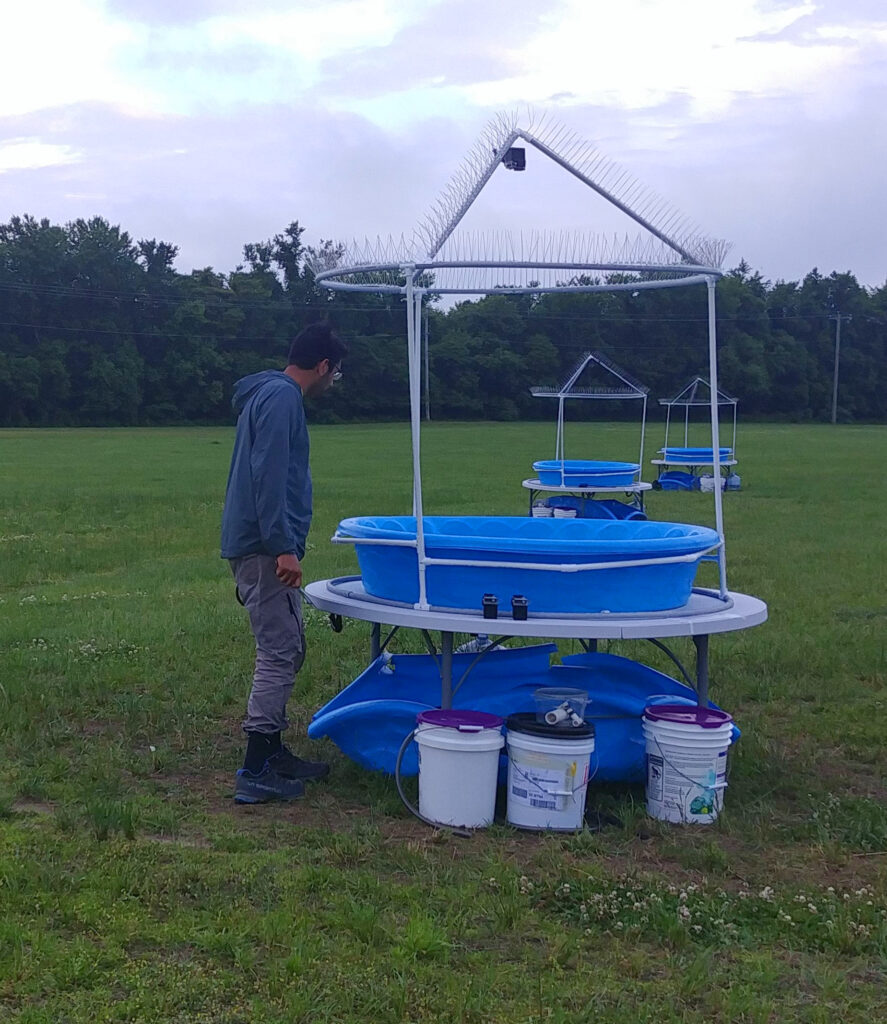
Chou is learning more about a region of the mantis shrimp brain called the central complex, which combines sensory information to help the animal decide what to do next. While much of the mantis shrimp changes drastically as it develops “from a weird little scrunchy larva to a big punching adult,” Chou recently discovered that one part of the central complex doesn’t change much at all. Now she’s asking why.
Roberts studies freshwater fish called darters. It’s common for multiple darter species to live in the same area, leading evolutionary biologists like Tamra Mendelson, professor of biological sciences, to wonder how they prevent interbreeding. Scientists had long assumed that female choice was the dominant driver, but Roberts and other students in Mendelson’s lab have shown that males are “probably much more important than we anticipated” in preventing interbreeding, Roberts says.
Independent thought
Chou and Patel both work closely with Tom Cronin, professor of biological sciences, and greatly value his approach to mentorship—encouraging them to take ownership over their work and pursue the questions that drive their passion for research. “My main philosophy is if graduate students are going to be successful career scientists, then they need to be able to work without a lot of direction,” Cronin says.
That attitude “fosters incredible independence,” says Patel. “I think we’re pretty strong at this point,” he adds, “because we had to work hard to establish exactly what we’re going to do and how we’re going to do it.”
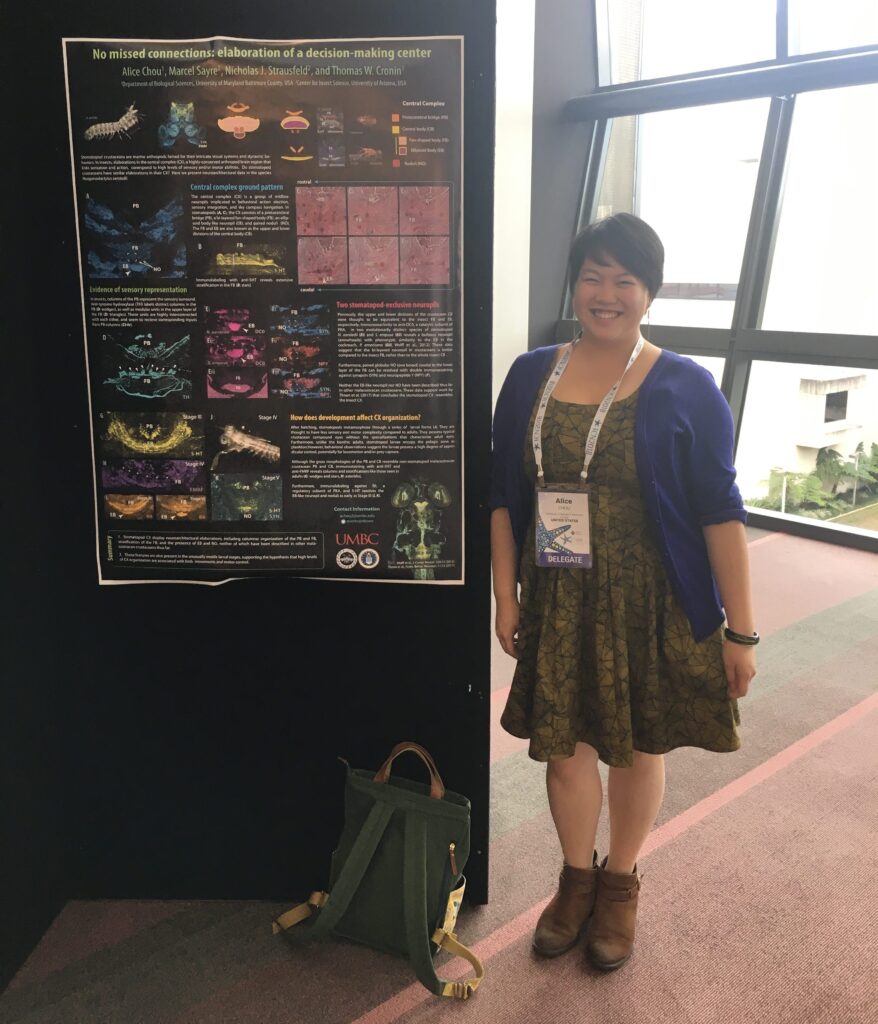
Giving his students the freedom to explore their interests and choose a thesis project independently sometimes means they choose topics outside Cronin’s own wheelhouse, as in Chou’s case. Even so, she says, “He’s been trying as hard as he can to get me the resources I need to answer the questions I want to ask.”
Mendelson, too, works to ensure her graduate students leave her lab as confident and experienced independent researchers. “That’s my biggest goal,” she says.
Roberts can vouch for that. “Tamra was really open to me trying techniques that she wasn’t as familiar with herself,” she says. And when Roberts has a gut feeling about which direction to take her work, Mendelson trusts her to run with it. “Her confidence in my skills and my intuition for what I’m doing has been really helpful,” Roberts reflects.
Grateful for guidance
Paired with that freedom is a level of support that helps Cronin and Mendelson’s students build compelling research projects and enhance their communication skills, which can lead to awards from big events like SICB.
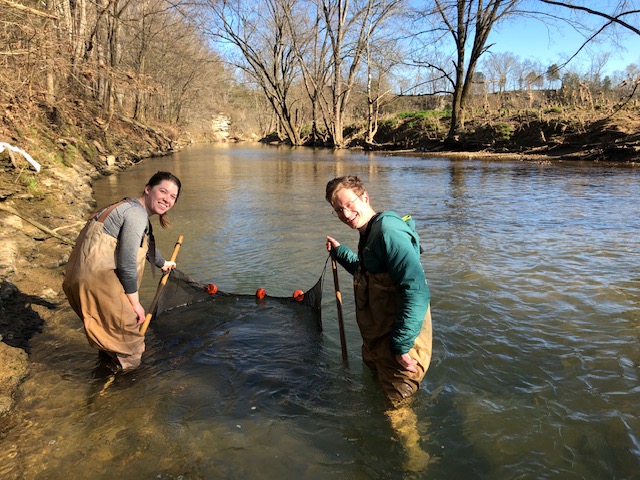
“I feel like one of the reasons that we do well in the student competitions is that we have mentors who are giving us constructive feedback,” says Roberts. All three Ph.D. students expressed gratitude for the support they’ve received in preparing for presentations, from their first research talk to today.
Plus, Roberts adds, Mendelson and Cronin “help us design research questions that don’t overlap with what’s already being done. They’re cutting edge.”
“I’m happy to sit down with them constantly,” says Cronin, whether it’s to talk about their research progress or help them sort out more personal challenges. Mendelson, too, is there for her students, in the classroom and in the field. When Roberts was struggling to collect fish for her experiments, “She and I together went out into the stream,” Roberts remembers.
Community of support
Beyond the individual relationships Patel, Chou, and Roberts enjoy with Cronin and Mendelson, they also support each other. “The grad student community here, especially in our cohort, is very close,” says Chou, “and whenever we go to conferences we feel well-represented and supported in the audience of our talks.”
In preparation for SICB, Cronin shares that the students “all supported each other and each one of them made the other ones better.”
While his mentorship style focuses on independent thought, Cronin also thinks of science as a team sport. “My lab is very much a culture of people who work together,” he says. “We all want to rise together so all the boats are floating. That’s the kind of science I believe in.”
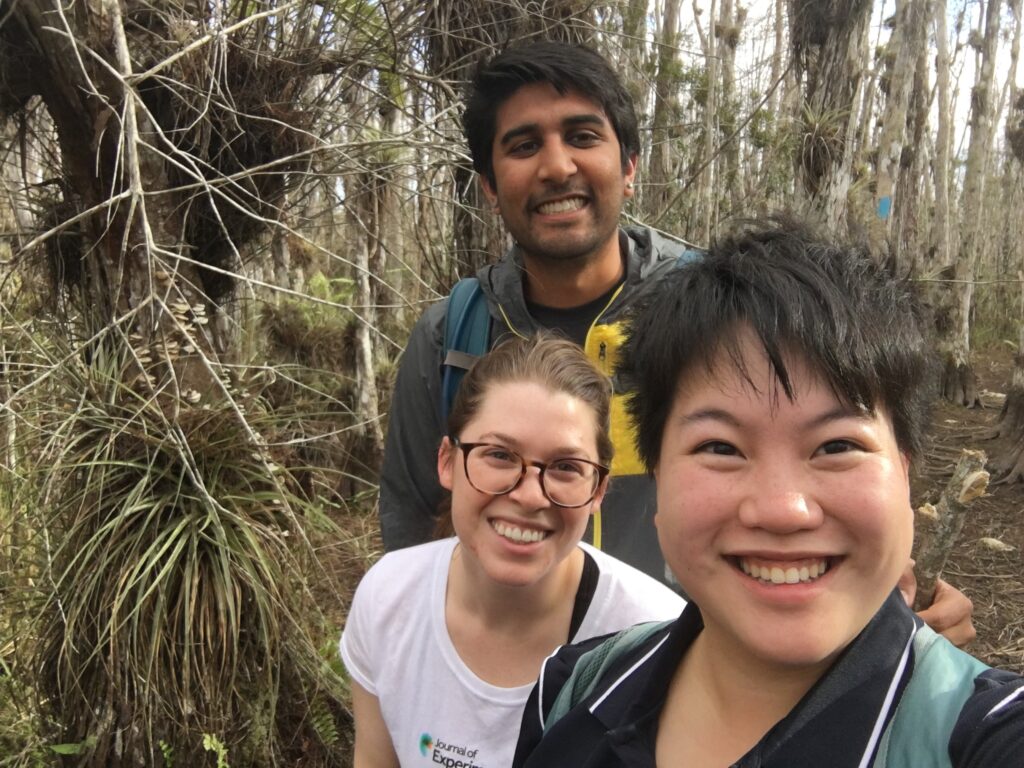
That collegiality benefits scientific progress. “We get a lot more done together than any one person could, and it’s non-linear,” Mendelson says. “The more people you have in the lab, you exponentially grow in productivity, and thinking, and directions you could go.”
Every person in the lab brings something unique to the mix. “From each of my students,” Mendelson shares, “I have found at least one unique characteristic that I admire and try to incorporate into my own work ethic.”
At SICB, says Chou, “You often see graduate students presenting their work right alongside high-flying lead investigators.” With the support they’ve received to pursue innovative research, and the recognition they’ve earned, Chou and her fellow Ph.D. candidates are already seeing themselves as that next generation of leaders.
Banner image: A peacock mantis shrimp. Photo by Bernard Dupont, used under creative commons BY-SA 2.0 license.
Tags: Biology, CNMS, GradResearch, GraduateSchool, Research

